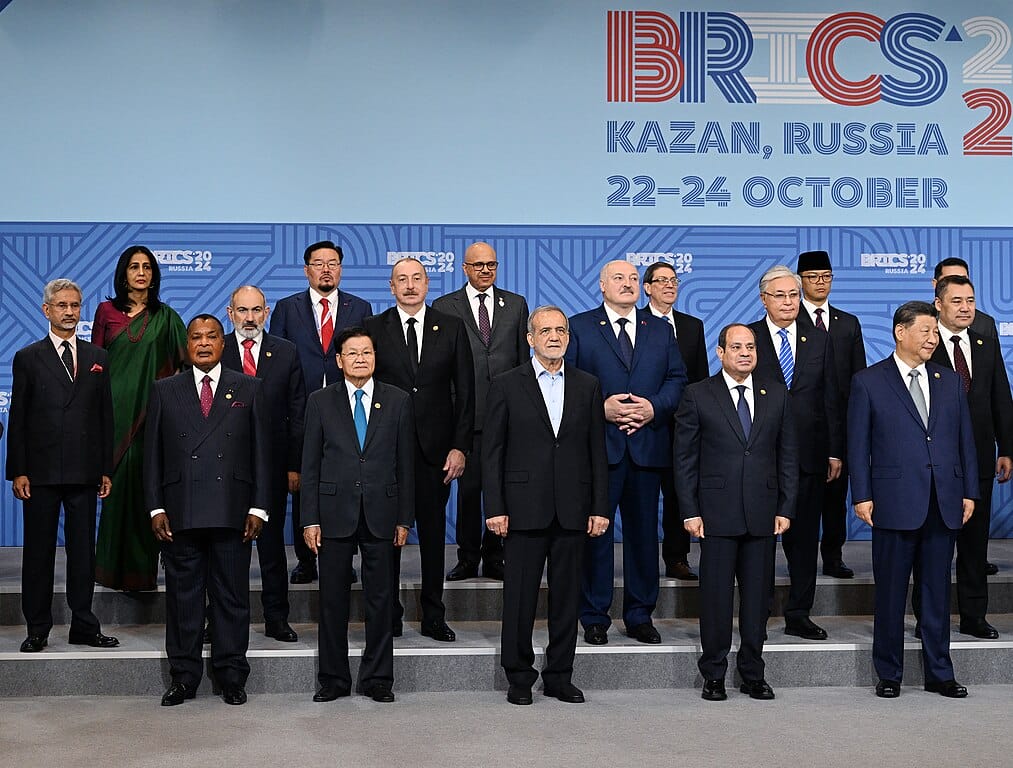Last updated:
 Why Trust Cryptonews
Why Trust Cryptonews
Ad Disclosure
We believe in full transparency with our readers. Some of our content includes affiliate links, and we may earn a commission through these partnerships.

BRICS payment plans could affect global crypto markets, a Russian expert has claimed, adding that Bitcoin (BTC) popularity would nonetheless remain high in the short term.
In an opinion piece for RBC, Fedor Ivanov, Director of Analytics at the crypto security provider Shard claimed that stablecoins could be the hardest hit.
BRICS Could Affect Crypto Markets: Expert Explains
At the recent BRICS summit in Kazan, Russia, leaders agreed to work on the so-called BRICS Bridge platform.
The platform, leaders say, will be a fiat cross-border payment system that makes use of wholesale CBDCs and blockchain technology.
BRICS leaders say the platform will “simplify and speed up international payments” for member states.
This will, in theory, let them slash transaction costs and cut out intermediaries from the traditional banking system.
It would also let the BRICS states bypass banking messaging systems like SWIFT and stop denominating trade in US dollars.

Ivanov wrote:
“If cross-border settlements start making use of CBDCs, this could have an impact on the crypto markets, especially the stablecoin market.”
The expert noted that there is an “obvious demand” for the BRICS’ new “instrument.” He wrote:
“In November 2024, Tether “printed” 12 billion USDT tokens. And it is unlikely that all the demand for the coin is associated exclusively with the Bitcoin rally. USDT is used in trading not only by Russia. It was also openly discussed in Venezuela.”
USDT Affected?
The expert noted that according to “rumors,” USDT is “also used for transactions with Iranian oil,” adding that “despite the issuer’s tightening of compliance,” the “demand for the coin has not yet fallen.”
The widespread use of CBDCs at a state level may lead to a decrease in BRICS nations’ interest in stablecoins.
He argued that “users may prefer more stable, regulated digital assets that do not risk being frozen for political reasons.”
Ivanov said that should they successfully launch CBDCs, BRICS countries may soon “reduce their use of stablecoins,” adding:
“They will have access to more convenient and secure alternatives for settlements.”
Bitcoin Not in Danger
However, Ivanov said, high-cap cryptoassets “such as Bitcoin” will “still remain attractive to investors looking for decentralized solutions.”
He conceded that settlements made in “national currencies” were “still not going as we would like.”
“In order for the introduction of CBDCs to have a real impact on the crypto markets, a significant portion of transactions will need to switch to digital fiats. And this is unlikely to happen anytime soon.”
Fedor Ivanov, Director of Analytics at Shard
Ivanov added that it was worth noting that “the largest countries that are actively implementing CBDC, namely China, Russia, India, and Saudi Arabia” were “themselves very wary of cryptocurrencies.”
He said that the nationwide launch of a CBDC in these nations could “entail a direct ban on the circulation of cryptocurrencies, as has already happened in China.”
Moscow Making Moves?
Russia’s Central Bank has long advocated a crypto ban. It also plans to launch its digital ruble nationwide sometime in 2025.
However, a total ban now looks unlikely. President Vladimir Putin has signed several crypto-specific laws this year, legalizing the use of crypto in cross-border trade and granting the crypto mining sector legal status.
“Russia has the most tangible incentive to move away from trading in the US dollar. Despite the fact that China is also a geopolitical adversary of the United States, it is also the largest foreign holder of US government debt (holding almost 20%). Thus, at least in the short term, it is not profitable for China to destroy the American currency. Nevertheless, alternative mechanisms must be created. And [BRICS nations] are currently working on these.”
Ivanov



